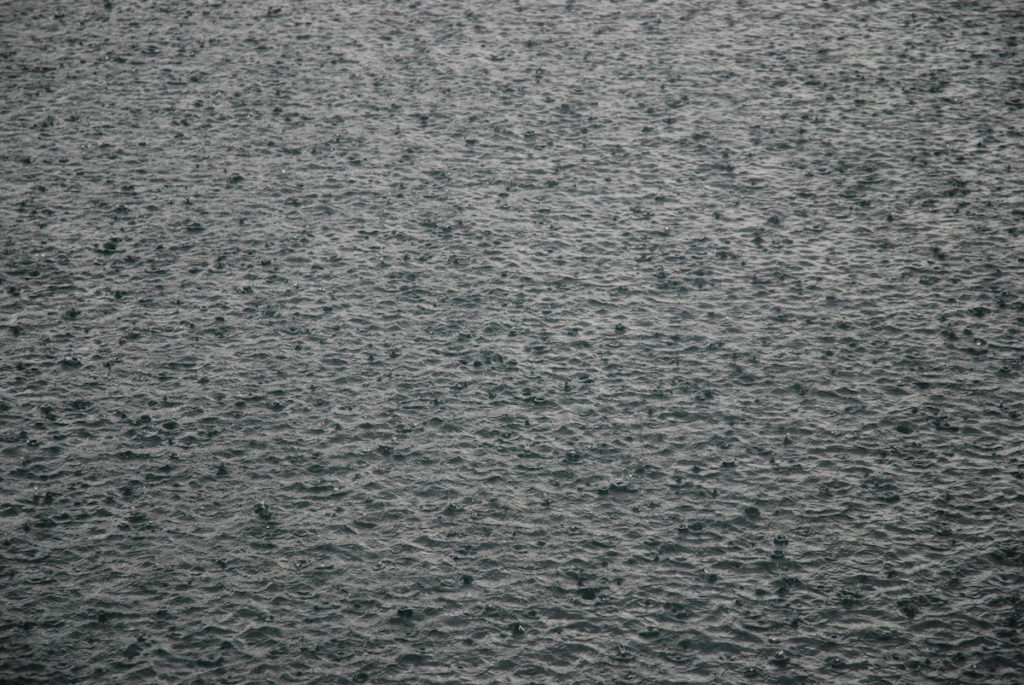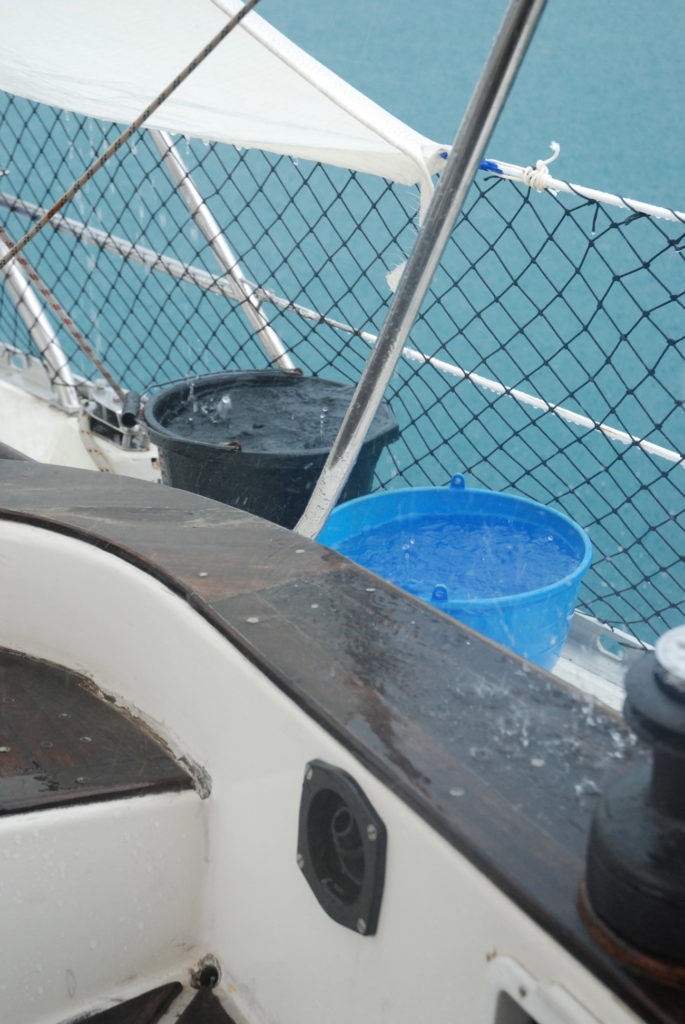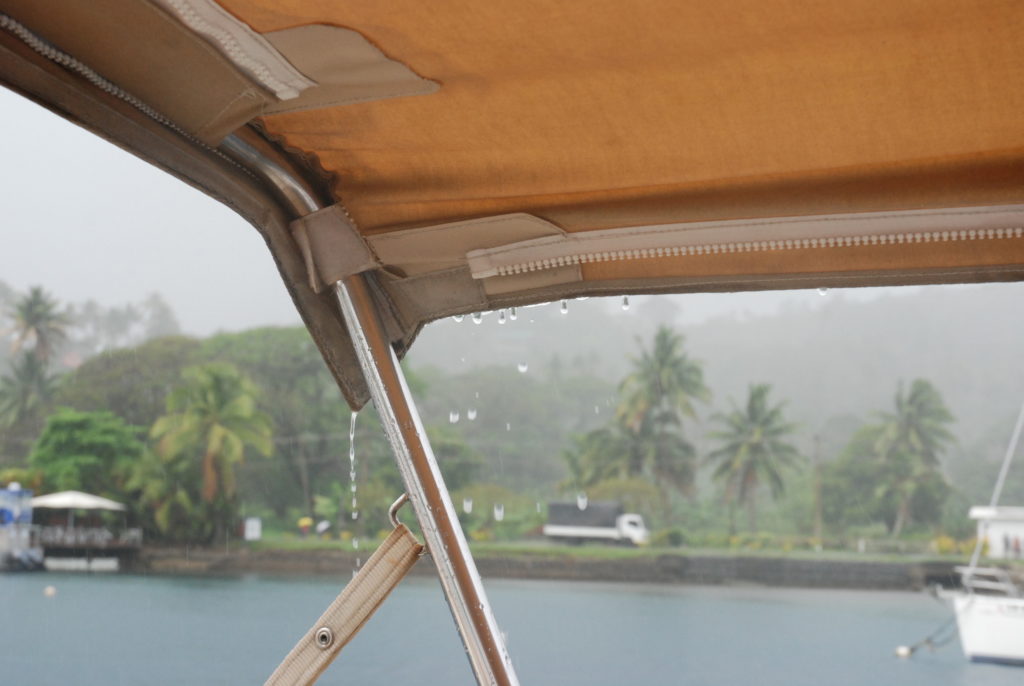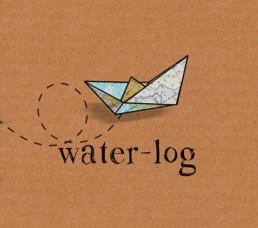
One of the most basic and fundamental needs of living on a true bluewater boat is carrying enough fresh water. You can have large tanks, you can store extra containers, you can install a water-maker or even harvest rainwater but the crucial and main point is that there must always be enough.
And, like anything else on a boat, ensuring that you have enough means allowing for and anticipating potential problems or flaws in your provisions. What do you do when you can’t run the water-maker because the generator breaks down or because the anchorage is too murky with pollution? How will you make up the shortfall if your main water tank becomes contaminated? What if a high-pressure water fill-up causes a tank to burst? Or someone confuses the “fuel” and “water” deck-fills? What if you run out mid-ocean or anchored somewhere remote and uninhabited?
There’s something oddly poetic about the contrast of sailing on a vast and endless sea but only having a finite amount of fresh water. And, of course, managing it properly is part of the challenge.
Of course, such insight into the pitfalls and likely flaws or issues with the availability of water only comes as a direct result of having got it so very wrong in the past, or been witness to others’ blunders in this area. Among the boats that we crossed the Pacific with, there seemed to be a continual gripe and moan over water-makers and the associated dark arts involved in mending and maintaining them. The radio frequencies were kept buzzing with talk of “pickling membranes” and “output performance”, together with an awful lot of blue language about what had gone wrong. The fact is, no matter how expensive, reliable and intelligent your water-maker is you still have to allow for it to conk out and be able to keep drinking, cooking and washing onboard.

It’s important for our young children to learn to wash their hands after using the toilet but it’s another challenge to encourage the understanding in toddlers that the fresh water needed to do so is precious and limited. Similarly, a simple visit from a friend or family member used to some slightly careless land-life ways of leaving taps running when brushing their teeth or purely just enjoying a long shower can leave your once plentiful tanks decimated by overuse. Equally, you mustn’t underestimate the huge volumes of water you need to keep drinking in the heat of the tropics, something that should never be skimped on, no matter what the restrictions of your tankage.
As well as our onboard main tank we’ve got used to carrying large quantities of different sized portable containers. This has proved especially useful in the numerous countries we’ve been to where there are no docks to tie up to and fill. Jerry jugs can even be transported further afield or in a car if there’s no easy option for filling by the shore. Of course, received in this way, there are quite necessary questions about the quality of the water supply. Sometimes it’s from large storage tanks of rainwater, or water from a spring; other times it may come from a well or upstream in a river. We always carry water treatment in abundance to make sure it’s safe as well as running it through filters aboard.
Having enough water to drink and bathe is essential. But it’s also desirable to have far more. What happens when you need to wash large amounts of bedding on board? Which is why every sailor we know rejoices in the rainfall. A heavy rain shower rinses all the salt off the deck and the rigging. You can leave out large buckets to collect it, open your deck fills to let it run straight in or set up tarpaulins and hoses to channel it. We routinely wipe down our dinghy so that we can quickly drop it into the water when the rain comes on, harvesting a veritable bathtub of good, clean water for laundry.
So the more you can store, the further and longer you can go. There’s still a relief when you can get to a marina or dock and fill everything afresh. This, for us, is always coupled with a strange sensation of leaning over, as our main water tank is on the starboard side, so a proper fill up will make us list a little. But, it’s a small price to pay for that freedom and ability to be our own self-sufficient floating island for a while longer.

